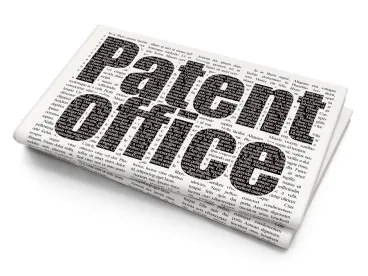The US Court of Appeals for the Federal Circuit found that a failed inter partes review (IPR) petitioner that maintained a Paragraph III certification had sufficient standing to appeal an adverse decision, but affirmed the Patent Trial and Appeal Board (PTAB) finding of non-obviousness on the merits. Amerigen Pharmaceuticals Ltd. v. UCB Pharma GmbH, Case No. 17-2596 (Fed. Cir. Jan. 11, 2019) (Lourie, J) (Chen, Stoll, JJ, concurring).
UCB owns an Orange-Book-listed patent covering certain chemical derivatives of 3,3- diphenylpropylamines, including a compound called fesoterodine. Fesoterodine is an antimuscarinic drug marketed by UCB as Toviaz® to treat urinary incontinence. Amerigen filed an IPR petition challenging the validity of UCB’s patent. The PTAB ultimately found that UCB’s patent was not obvious in view of the cited prior art. Amerigen appealed.
UCB moved to dismiss the appeal for lack of standing. Amerigen had previously lost a Hatch-Waxman litigation in district court and was required to change its US Food and Drug Administration (FDA) filing into a Paragraph III certification, thereby preventing final FDA approval of its product until after the expiration of UCB’s patent. UCB argued that since the FDA could not approve Amerigen’s abbreviated new drug application (ANDA) until the expiration of the challenged patent, there was no potential for infringement leading to a justiciable dispute. In response, Amerigen argued that its ANDA product had already secured tentative approval from the FDA, and that invalidating the claims of UCB’s patent would advance the launch of its product.
The Federal Circuit agreed with Amerigen, finding that this case did not arise under the Hatch-Waxman Act and that Amerigen did not rely on a risk of infringement liability as a basis for injury. Instead, the Court found that the mere listing of UCB’s patent in the Orange Book inflicted a concrete commercial injury that was redressable by the Court. Turning to the non-obviousness finding, the Court affirmed the PTAB’s finding that Amerigen did not satisfy its burden of showing that the challenged claims of UCB’s patent were obvious in view of the substantial evidence relied upon by the PTAB.
Practice Note: Based on this decision, it appears that ANDA filers that choose to file an IPR petition have multiple opportunities to invalidate an Orange Book patent even if they end up losing in the district court litigation. This strategy of filing an IPR may be even more compelling when the primary basis for generic challenge is invalidity rather than non-infringement.



 />i
/>i

